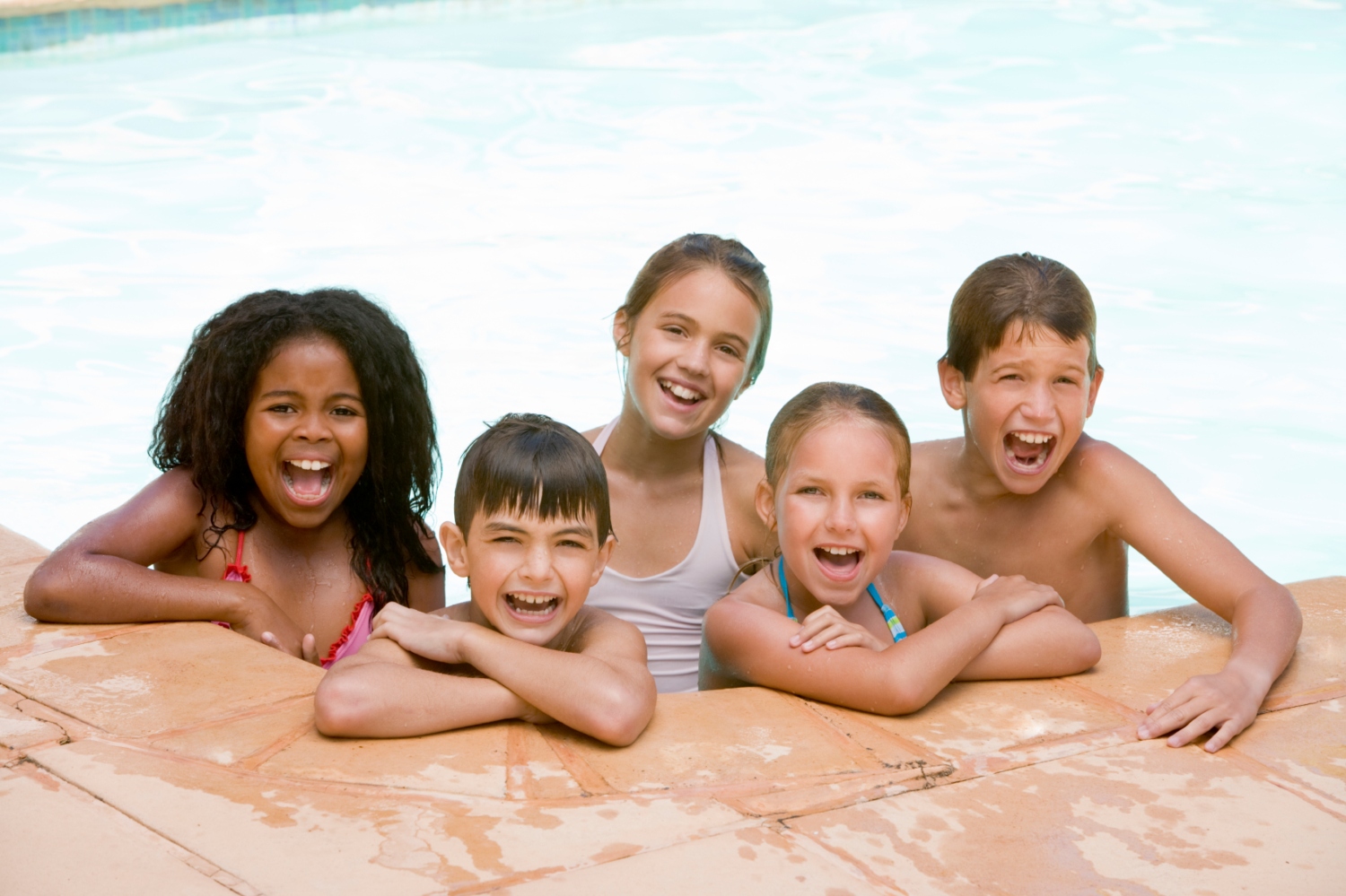Moving to a new home in Spain is exciting, but you may have concerns about how the move might affect your children.
At Micasamo, we successfully lived through this transition with four children ranging from toddlers to teens. As a result, we can share our first-hand experience and offer advice to help you make a smooth and stress-free move, ensuring you and your whole family get off to a great start with your new life in the sun.
Is Spain a good place to raise a family?

If you’re searching for a good place to raise a family, Spain is an exceptionally child-friendly country, with very affordable living and fantastic weather.
The Spanish culture places a huge emphasis on family and community life, with children regularly included in everything their parents and grandparents do. There’s also an abundance of child-friendly attractions, offering plenty of opportunities for you and the kids to explore together.
Life in Spain is about healthy, outdoor living with plenty of new and exciting adventures to discover. The great weather provides ample opportunities for beach days, mountain hikes, a wide variety of sports, parks and playgrounds and an active social life for all of the family.
And, with the Costa Blanca and Costa Cálida, in particular, enjoying more than 320 days of sunshine a year, you don’t need to worry too much about being rained on during family days out!
How can you best prepare your children for a move to Spain?
Let’s start by looking at some of the most significant stress factors that could affect your children when moving to a new country.
Knowing these, as part of the planning and preparation process, means you can take steps to resolve or minimise their stress. Seek any support you need, so everyone can settle into their new home and enjoy all the benefits of living in Spain as quickly as possible.
Stress factors for children can include:
1. Saying goodbye to family and friends
2. Feeling apprehensive about making new friends
3. Settling into a new home in an unknown place
4. Starting a new school or college
5. Language barriers – being able to communicate their needs
6. Cultural differences.
Different age groups and personalities are likely to cope in different ways – and it will depend largely on your children and your own situation. Even if they appear to be coping well, you’ll still need to keep a keen eye out for anything that might be developing under the surface.
Involving your children in the planning and preparation of your family move is essential. It will help them to process a lot of the details and build their confidence ahead of time, so they begin to see the move as positive and exciting.

While most places in Spain offer a wide variety of food options, including international cuisines, you might consider introducing Spanish foods and flavours before your move, especially if you have picky eaters in the family! Make it a fun exploration, include the children in the meal preparation, and enjoy family tapas or paella evenings.
You can also start brushing up on your Spanish skills as a family to get a head start before you move. Look for local classes or online apps and games. Knowing the basics of the language can give your children a confidence boost and will make everyday life much easier for the whole family when you finally relocate.
Once you arrive in Spain, there are endless opportunities for your children to start meeting other children and families in school and by joining extracurricular activities. Socialising is a way of life in Spain and, with a thriving ex-pat community, provides the perfect balance for mixing ex-pat connections with local living.
Finding the right location for all the family
As real estate agents, it’s our job to ensure you get the whole picture of your new life in Spain. We’ll work closely with you to understand precisely what you’re looking for to ensure you get the location and lifestyle that best suits every family member’s needs.
One of the questions we often ask is, ‘What would you like to do on a Sunday?’.
Questions like this help us to build a clear picture of the vision you have for family life in Spain – and from there, we can help you find the perfect property. For example, do you envisage your teenage son going off to the beach to play volleyball with his new friends (without Mum or Dad’s taxi being required) while you get in a round of golf before heading out for a leisurely lunch, just a short walk away from your new home?
Whatever your vision for family life in Spain might be, the team at Micasamo can help you make it become your reality.
Choosing the right school for your children
One of the biggest decisions you’ll make when moving to Spain is which school to register your children with. You may feel spoiled for choice with options ranging from state-funded, state-subsidised (concertado) and private – including international schools.
Online ex-pat networks can be a great place to connect with other parents in the area you’re moving to, to learn first-hand about the local school options and establish what’s best for your children.
Preschool
Just as in the UK, there are both state and private nurseries.
Nursery Schools (guarderias) are for children up to three years old, with fees starting at around €150 per month for a public nursery place and about €300 for a private place.
Children can then go on to attend Kindergarten from the age of three to six, which is free of charge.
Primary education – ages 6 to 12

Once again, there is the option to send your child to a state or private school.
If you choose to send your child to a state school, which is free to attend, all teaching will likely be in Spanish. However, schools have considerable freedom in teaching the curriculum, so we suggest you thoroughly research the schools you are interested in.
The other thing to remember is that although it’s free to attend a state school, it might be necessary to purchase books and other materials.
Private fee-paying schools can charge as little as €300 a year, with others costing much more, especially for boarding schools. Typical costs range from €10,000 to €30,000 (for boarding).
Secondary education – ages 12 to 16
This is split into two stages. Educación Secundaria Obligatoria (ESO) and Bachillerato or professional training.
ESO is compulsory, whereas Bachillerato (preparation for university) is not.
Secondary state schools are free, but students may be required to pay for books and additional learning materials.
As well as state schools, there are several other options to consider.
1. Colegios concertados – state-subsidised schools following the same curriculum as public schools.
2. International schools – Teaching can be bilingual and in another country’s language. There are English, French, German, Italian, and Swedish-speaking schools in Spain.
3. Religious schools – Catholicism is the main religion in Spain, and 15% of schools are Catholic, making up 58% of subsidised private schools.
4. Boarding schools – whilst boarding schools are usually of a high standard, fees can be high, with some costing more than €30,000 a year.
Online schooling

Another option is online schooling, which we have first-hand experience of. Lockdown gave us the perfect opportunity to check out online schooling for our own teenagers.
We did a lot of research and found Wolsey Hall Oxford the best option for our children, where they could learn independently and build confidence. There are, of course, other choices that you can explore if this seems like the best route for your children.
Lots more valuable information about schools in Spain can be found on the Expatica website.
Things to consider about schools in Spain
1. Not all schools will offer transport options, and public transport might not be suitable.
2. The length of the school day can vary between schools and locations. For example, some primary schools start at 9 am and finish at 2 pm, with time for a snack break but no lunch hour. However, schools that finish at 3 pm typically do stop for lunch.
3. Other schools have a more extended lunch break, taken at home, and then return for lessons later in the day.
4. Similar to schools in the UK, the schools that do have a lunch break where children stay on-site may serve lunch in a canteen, or a packed lunch can be taken.
5. It is a law that Spanish schools help any international students to integrate into the system. This could mean additional tuition or children remaining in a lower year until they reach the required written and spoken Spanish standards to move up.
Healthcare options
There is a high standard of healthcare for families in Spain, with any child resident receiving free health and dental care.
When you start making Seguridad Social payments (either through your employer or as a self-employed ‘autonomo’), the whole family will have free access to the Spanish state healthcare system.
Parents opting for private health care will find that health insurance policies cover their children.
Volunteer translators are often available at larger hospitals for new arrivals that may need help with the language – or we can provide details for reputable translators at any time if required.
Next steps

As part of the service with Micasamo, we can make appointments for you to visit prospective schools. We recommend that research into schools is conducted sooner rather than later and are always happy to help.
If you’re ready to start the exciting process of looking for a new home in Spain for all the family, don’t hesitate to get in touch to learn more about how we can find you the perfect location and make your new dream life in the sun a reality.

